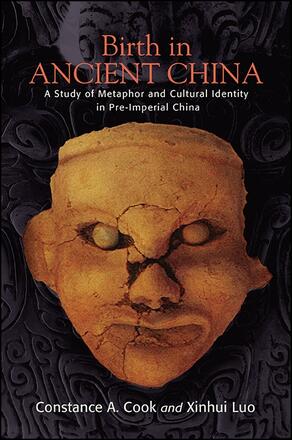
Birth in Ancient China
A Study of Metaphor and Cultural Identity in Pre-Imperial China
Alternative formats available from:
Reveals cultural paradigms and historical prejudices regarding the role of birthing and women in the reproduction of society.
Description
Using newly discovered and excavated texts, Constance A. Cook and Xinhui Luo systematically explore material culture, inscriptions, transmitted texts, and genealogies from BCE China to reconstruct the role of women in social reproduction in the ancient Chinese world. Applying paleographical, linguistic, and historical analyses, Cook and Luo discuss fertility rituals, birthing experiences, divine conceptions, divine births, and the overall influence of gendered supernatural agencies on the experience and outcome of birth. They unpack a cultural paradigm in which birth is not only a philosophical symbol of eternal return and renewal but also an abiding religious and social focus for lineage continuity. They also suggest that some of the mythical founder heroes traditionally assumed to be male may in fact have had female identities. Students of ancient history, particularly Chinese history, will find this book an essential complement to traditional historical narratives, while the exploration of ancient religious texts, many unknown in the West, provides a unique perspective into the study of the formation of mythology and the role of birthing in early religion.
Constance A. Cook is Professor of Chinese at Lehigh University and the author of Death in Ancient China: The Tale of One Man's Journey. Xinhui Luo is Professor of Chinese Ancient History at Beijing Normal University, China.
Reviews
"…this book will be a compelling choice for scholars and graduate students of early Chinese culture and history. Scholars of religious, anthropological and gender studies in general will also find this book a valuable addition to their reading lists. " — Reading Religion